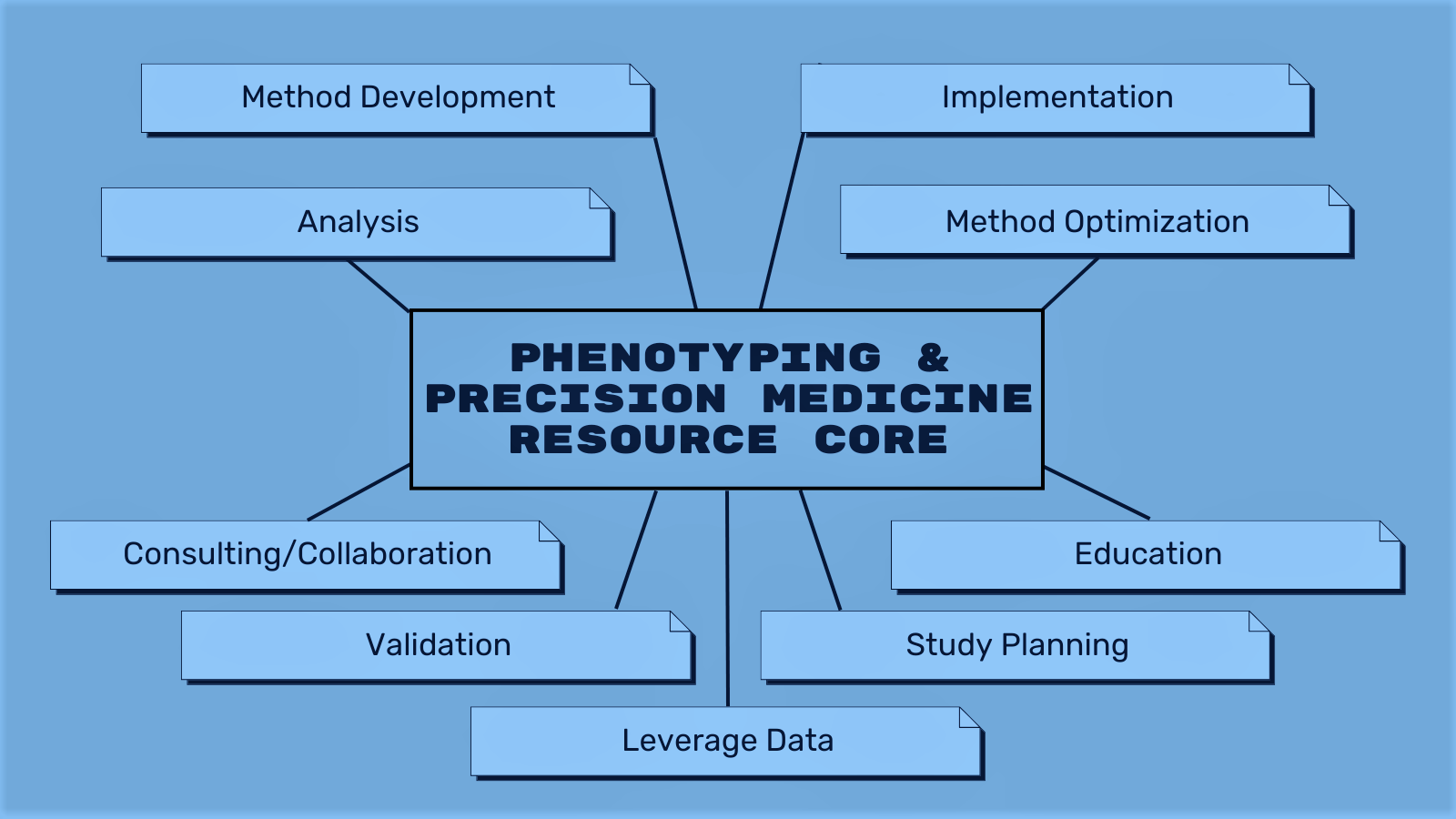Phenotyping & Precision Medicine Resource Core
Purpose

The Phenotyping and Precision Medicine Resource Core provides critical services to our research community that broadly include:
- Key scientific expertise and analytic resources needed for Prognostic and Prescriptive Phenotyping
- Prognostic phenotyping (predicting outcomes by specific subgroups, e.g., “progressors” versus “non-progressors”).
- Prescriptive phenotyping (e.g., predicting response to specific interventions)
- Guidance and advice to investigators on phenotypic considerations (such as choice of input and outcome variables) in order to enhance the design, implementation, and interpretation of new clinical studies and trials.

For more information, or to speak with someone regarding our Phenotyping and Precision Medicine Resource Core, please contact Amanda Nelson, MD: Amanda_Nelson@med.unc.edu.
Setting You Up For Success
Links to Recent Publications:
- Nelson AE, Keefe TH, Schwartz TA, Callahan LF, Loeser RF, Golightly YM, et al. (2022) Biclustering reveals potential knee OA phenotypes in exploratory analyses: Data from the Osteoarthritis Initiative. PLoS ONE 17(5): e0266964. https://doi.org/10.1371/journal.pone.0266964
- Jiang X, Nelson AE, Cleveland RJ, Beavers DP, Schwartz TA, Arbeeva L, Alvarez C, Callahan LF, Messier S, Loeser R, Kosorok MR. Precision Medicine Approach to Develop and Internally Validate Optimal Exercise and Weight-Loss Treatments for Overweight and Obese Adults With Knee Osteoarthritis: Data From a Single-Center Randomized Trial. Arthritis Care Res (Hoboken). 2021 May;73(5):693-701. doi: 10.1002/acr.24179. PMID: 32144896; PMCID: PMC7483572.https://www.ncbi.nlm.nih.gov/pmc/articles/PMC7483572/
Note: We invite you to view this recorded presentation on Precision Medicine, featuring Dr. Amanda Nelson: “Machine Learning for Phenotyping in OA.”
For more information, or to speak with someone regarding our Phenotyping and Precision Medicine Core, please contact Amanda Nelson, MD: Amanda_Nelson@med.unc.edu.
To initiate the process of requesting information, data, and/or collaboration from UNC’s CCCR, please complete and submit this form.
